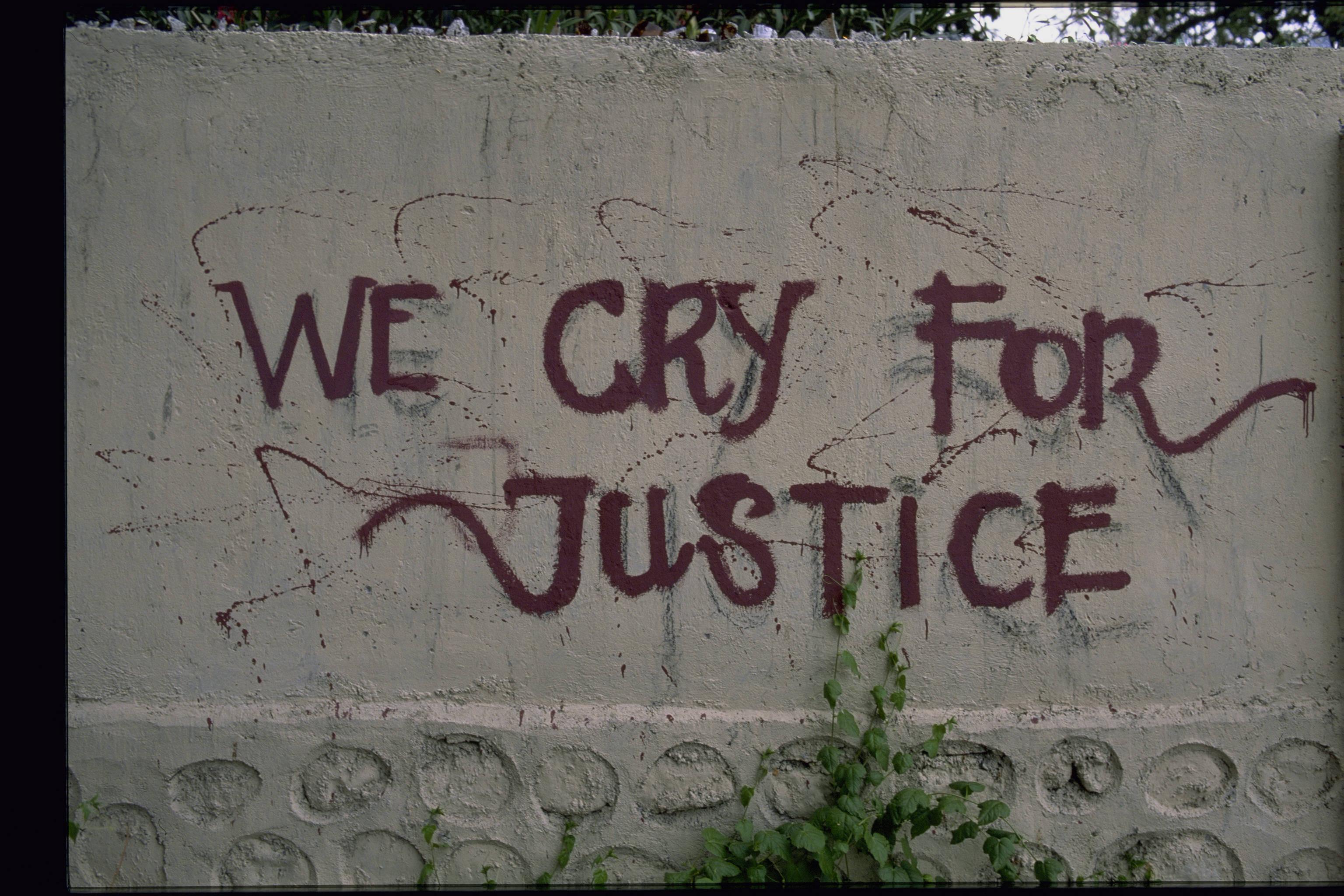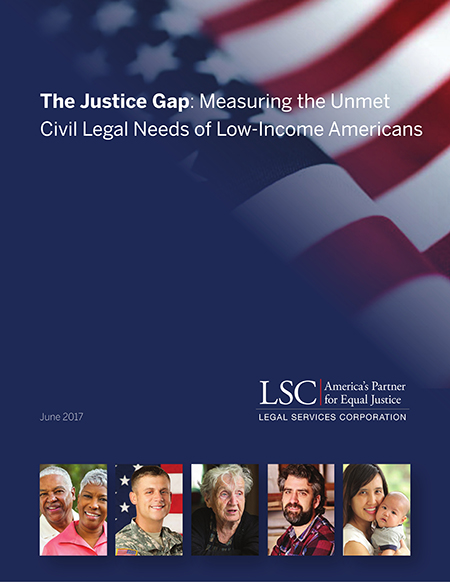 What do all of these talents have in common?
What do all of these talents have in common?
Well, all of these (somewhat quirky) folks recently joined the OneJustice team!
We sat down with them and asked them to share a little something about themselves, including:
- What drew you to OneJustice’s vision, mission, and strategies?
- Tell us a bit about your position at OneJustice and what you hope to achieve?
- What was your path in coming to OneJustice?
- And please tell us something about yourself that not everyone might know.
We think you’ll enjoy hearing their responses below. And we know that you’ll enjoy working with them as they get up and running in their work! Join us in welcoming Ellie Dehghan, Maria Gavaldon, Dania Herrera, Stuart Johnson, Michael Palzes, and Fabiola Quiroz!
Ellie Dehghan, Staff Attorney, Pro Bono Justice
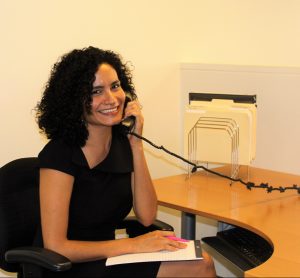 OneJustice’s mission is urgent, pivotal, and deeply personal. In 1975 rural West Texas, a legal aid attorney helped a teenage Mexican immigrant gain access to the education to which she was entitled. That teenager was my mother, and she went on to become the first in her family to graduate from college. Access to legal services produces generational impact, to which my story is a testament.
OneJustice’s mission is urgent, pivotal, and deeply personal. In 1975 rural West Texas, a legal aid attorney helped a teenage Mexican immigrant gain access to the education to which she was entitled. That teenager was my mother, and she went on to become the first in her family to graduate from college. Access to legal services produces generational impact, to which my story is a testament.
How attorneys engage in pro bono work is as critical as the number of hours they spend engaged in that work. Through the Pro Bono Justice Consulting program at OneJustice, my hope is to address and enrich the “how” portion of the equation. I will be facilitating the launch of pro bono networks, supporting stronger partnerships across the sector, and creating a space for innovation and creativity as we work to increase access to justice for Californians.
I am adamant about utilizing an equity and inclusion lens no matter what our role may be and no matter the section of the legal space in which we operate. Prior to spending three years building and implementing projects in legal aid, I spent two years as a litigator in BigLaw with a strong commitment to pro bono. Most recently, I expanded Bay Area Legal Aid’s Youth Justice project to San Mateo County, serving youth at risk of homelessness as their holistic civil legal aid attorney. I am particularly fortunate to have helped launch BayLegal’s inaugural Racial Justice Committee, spearheading racial justice and inclusion efforts not only in client advocacy, but within the organization as well.
My sense of humor is most akin to that of my eight-year-old nephew. I enjoy writing creative nonfiction but do not do it nearly enough. I used to be able to finish an entire Black and Tan Sundae at Fenton’s in Oakland – it is huge and delicious.
Maria Gavaldon, DreamSF Fellow, Pro Bono Justice
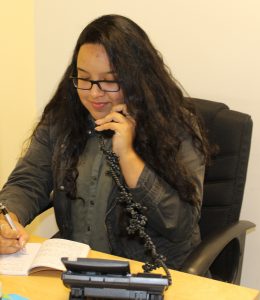 I was assigned to be at One Justice through my DreamSF Fellowship with OCEIA. I was interested in this fellowship because as a DACA student, I wanted to do more hands on work with the immigrant community. Something I often notice is that we don’t have many minority groups or people with stories like ours giving us legal representation. I hope to be the person with whom our clients feel comfortable when talking about their experiences and to be able to let them know that we are here for each other.
I was assigned to be at One Justice through my DreamSF Fellowship with OCEIA. I was interested in this fellowship because as a DACA student, I wanted to do more hands on work with the immigrant community. Something I often notice is that we don’t have many minority groups or people with stories like ours giving us legal representation. I hope to be the person with whom our clients feel comfortable when talking about their experiences and to be able to let them know that we are here for each other.
At One Justice, I am mostly in charge of doing outreach and scheduling appointments for Justice Bus Clinics. I also do research on future locations we are going to visit so we can know what organizations to partner up with. During the Justice Bus clinics, I interpret for attorneys and translate our paperwork for clients. What I want to gain from One Justice is knowledge about criminal and immigration law, as well as getting better at translating English legal terminology into Spanish. I hope to one day be one of the few undocumented lawyers the Latino community can relate to and confide their personal stories with.
I am currently enrolled at San Francisco State University starting my third year as a Political Science major. Previously, I was an ASI Project Connect intern at SF State where I did outreach to current and future students from underrepresented communities. I was also involved on campus with our new Food Pantry where we gave groceries exclusively to SFSU students. During the Spring 2017 semester, I received recognition for my community service hours and I hope to eventually have a position in the student board to bring more awareness to the undocumented students on campus.
I am a hardcore fan girl and my friends always make fun of me. When I graduated high school, they would tell me it was time to grow up and get rid of my posters and stop tweeting about bands all the time. I haven’t stopped because there’s so many college girls who are just as obsessed as me so I don’t mind. I’m still waiting for One Direction to come back from hiatus.
Dania Herrera, Program Associate, Pro Bono Justice
 OneJustice works to make legal representation accessible to all Californians. In college, I studied Sociology with a special focus on the problems within the legal system that could affect access to legal representation. After learning about OneJustice’s mission and their body of work, I knew OneJustice would be a good fit for me because they do legal accessibility work every day.
OneJustice works to make legal representation accessible to all Californians. In college, I studied Sociology with a special focus on the problems within the legal system that could affect access to legal representation. After learning about OneJustice’s mission and their body of work, I knew OneJustice would be a good fit for me because they do legal accessibility work every day.
I am in charge of legal clinic planning and logistics along with other members of the Pro Bono Legal Clinics Team; my main responsibilities are to make sure our legal clinics run smoothly from beginning to end by helping to recruit volunteer attorneys, interpreter volunteers, and conduct outreach to clients. I hope to identify and fill legal accessibility gaps in California by working with the rest of the OneJustice team.
I previously worked as a legal assistant at different immigration law firms in the city. I also interned for the Kamala Harris for Senate campaign because her campaign platform focused on repairing different accessibility issues in California. I was also able to bridge my love of the law and books by working as a law library clerk at the UC Davis Law School.
I can’t find people like Liam Neeson can, but I sure know how to guess the endings of movies and TV shows. I am also accidentally good at playing soccer. When I exercise, I workout by doing a weird hybrid of running and jumping rope. Rocky can eat his heart out! I am also weirdly good at staying upright on a runaway crowded Muni bus in heels.
Stuart Johnson, Executive & Operations Coordinator
 I am passionate about public service and serving the common good. OneJustice’s mission to expand access to the civil legal aid system for all Californians is inspirational to me and motivates me to do my very best every day.
I am passionate about public service and serving the common good. OneJustice’s mission to expand access to the civil legal aid system for all Californians is inspirational to me and motivates me to do my very best every day.
At OneJustice I provide executive support to the CEO and Board of Directors. I am also a member of the Development and Communications team and provide office management support. Most recently I have started building our media relations plan for the year. While at OneJustice, I hope to learn more about nonprofit management and pro bono law.
Most recently, I worked in former California Senator Barbara Boxer’s communications office. I have also worked as a grassroots organizer on a few political campaigns and as an immigration services coordinator at Berry Appleman & Leiden LLP. I hold a Bachelor of Arts degree in Political Communication with a minor in Economics from The George Washington University.
I really love (unfortunately) consuming an excessive amount of political news, playing adult league baseball, and visiting the Lost Coast!
Michael Palzes, Staff Attorney, Pro Bono Justice
 I am concerned that civil legal aid is currently facing unprecedented challenges, and want to do more to help protect access to justice. I think OneJustice’s commitment to building capacity and expanding access to indigent legal services is both exciting and critically necessary. By joining OneJustice I hope I can make the kind of broader systemic impact that is not always possible in direct services legal aid work.
I am concerned that civil legal aid is currently facing unprecedented challenges, and want to do more to help protect access to justice. I think OneJustice’s commitment to building capacity and expanding access to indigent legal services is both exciting and critically necessary. By joining OneJustice I hope I can make the kind of broader systemic impact that is not always possible in direct services legal aid work.
I am taking over primary responsibility for the IMPACT LA project, and spearheading a new immigration pro bono capacity building project with my Pro Bono Justice Team colleagues. In both projects a substantial portion of my focus will be on delivering legal services to low-income survivors of domestic abuse and other forms of severe trauma. I hope to continue the good work of IMPACT LA and build on the successes I have inherited with that project. I further hope to build a long-term sustainable network for providing legal services to immigrant communities that can help people overcome the fear and uncertainty of our current immigration climate.
Before joining OneJustice, I was a staff attorney at Nevada Legal Services in Reno. I coordinated the state’s legal aid program for low-income HIV positive individuals, and before that served as an Equal Justice Works Fellow in criminal justice re-entry and record sealing. In both positions with Nevada Legal Services I focused substantially on providing services to survivors of human trafficking and domestic abuse. Prior to that, I worked at the Montana Department of Justice where my duties included service on that state’s Access to Justice Commission and its Domestic Violence Fatality Review Team.
I am a huge trivia buff, and generally love odd facts and useless information. For the last two years in Reno I co-hosted and wrote the questions for a local pub trivia night. Growing up I played on competitive school-sponsored trivia teams in the National Academic Quiz Tournaments league, and did multiple screen tests for Jeopardy! (though have yet make it on the show). I also love National Parks and historic sites, where I usually spend way too much time reading plaques and collecting new bits of trivia. I’m looking forward to finding a new trivia night as I get more settled into Los Angeles.
Fabiola Quiroz, Program Associate, Pro Bono Justice
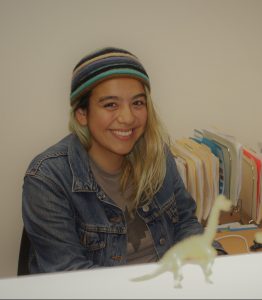 As a mentor for the Latino Peer Program at Humboldt State University, I advocated for DACA legal assistance for students and people in our community. Our organizing efforts painted a picture of how limited resources are in rural communities, and the partnership that developed with OneJustice truly made our vision of a DACA legal clinic a reality in Humboldt County. This community organizing effort has led me to be a part of a team that seeks to innovate our current legal aid system.
As a mentor for the Latino Peer Program at Humboldt State University, I advocated for DACA legal assistance for students and people in our community. Our organizing efforts painted a picture of how limited resources are in rural communities, and the partnership that developed with OneJustice truly made our vision of a DACA legal clinic a reality in Humboldt County. This community organizing effort has led me to be a part of a team that seeks to innovate our current legal aid system.
As one of the Pro Bono Justice Program Associates, I am responsible for managing the Justice Bus Project and Rural Justice Collaborative legal clinics. As an “outsider” organization hoping to help rural communities, I strive to forge strong relationships with organizations in the communities we hope to serve to ensure a better understanding and accessibility to the legal help we provide.
I volunteered at the student-initiated and student-led Youth Educational Services (Y.E.S.) whose mission is to serve local community needs. Within Y.E.S. House, I volunteered with the Homelessness Network which offers assistance to homeless families. Our focus is on educational exposure for the children to nurture their creativity and love of learning. I also volunteered my time to help facilitate the 3rd Annual Resource Fair at the San Francisco County Jail #5. Our hope was to engage participation of organizations that cater to the needs of re-integration and provide the incarcerated men resources upon release. One of the most impacting moments was during a group session inside the jail and hearing incarcerated men give advice to an incarcerated man who was being released in just two days.
I enjoy foraging for food, especially nutritious chicken of the woods mushrooms in Humboldt County!
Save
Save
Save
Save
Save
Save
Save
Save
Save
Save
Save
Save
Save
Save
Save
Save
Save
 The Texas Access to Justice Foundation has created a special fund to receive donations to fund Disaster Legal Aid to survivors of Hurricane Harvey. Donate to the Hurricane Harvey Legal Aid Fund here online.
The Texas Access to Justice Foundation has created a special fund to receive donations to fund Disaster Legal Aid to survivors of Hurricane Harvey. Donate to the Hurricane Harvey Legal Aid Fund here online.








